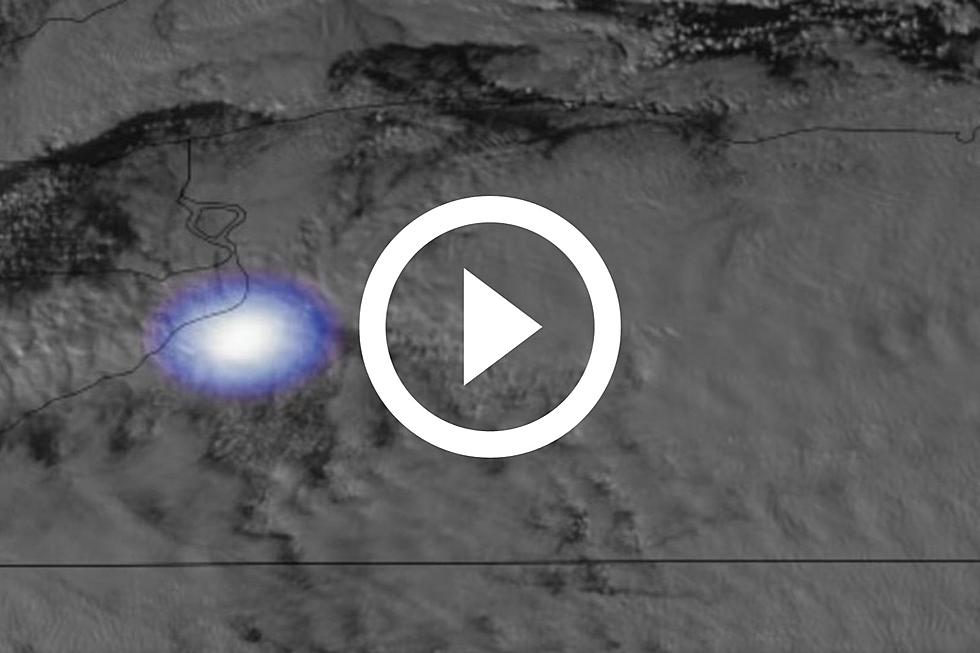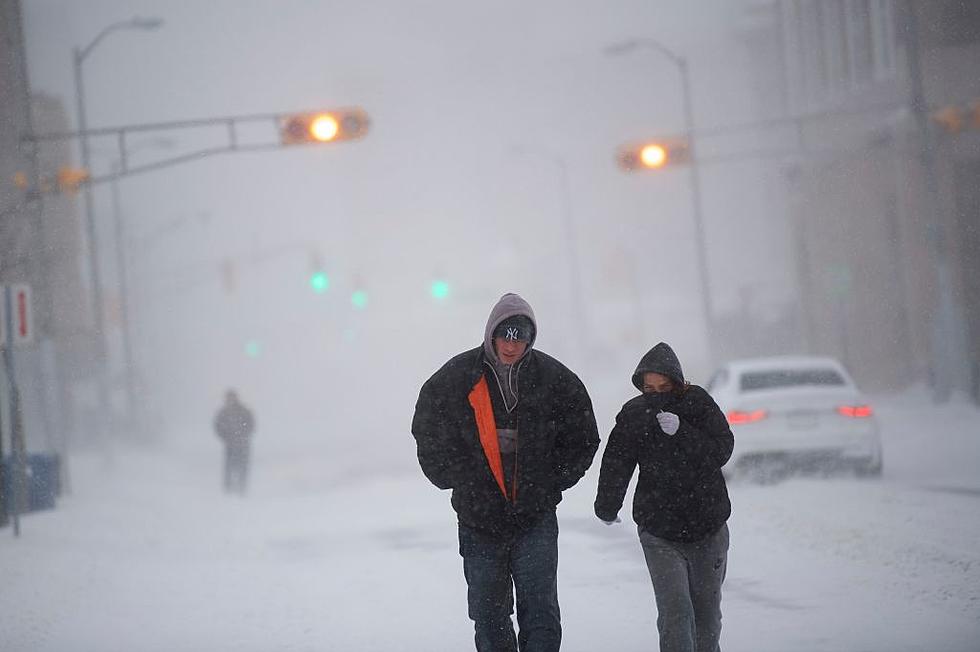
Rare Thundersnow Storm Lighting Strikes New York in Amazing Video
Here's something you don't see every day. Lightning in the middle of a snowstorm.
Who says thunderstorms are only in the spring? They can happen in the winter too. It's called thundersnow and it's rare, but it happens. One was captured over New York during the first significant snowstorm of the season.
What is Thundersnow
Thundersnow is basically a winter thunderstorm or a thundersnowstorm. Instead of rain that falls, it's snow. The National Oceanic & Atmospheric Administration says the rare phenomenon requires a combination of moisture, instability, and a lifting mechanism.
It can also occur when cold air passes over relatively warm water, producing snow squalls over the Great Lakes.
In some winter storms, shallow layers of warm air are lifted and continue to rise on their own - increasing snowfall and causing enough electric charge separation for lightning to occur.
Satellite Tracks Thundersnow
There were 3 back to back nor’easter winter storms within ten days in 2018 along the East Coast. The NOAA GOES East (GOES-16) satellite Geostationary Lightning Mapper captured the lightning from these events which produced thundersnow.
Tracking lightning during a snowstorm helps meteorologists since thundersnow is typically associated with increased snowfall. The first storm of the season dumped anywhere from 43 inches in Lewis County to more than a foot in the Buffalo area.
WATCH Thundersnow in Southern Erie County
The GOES-16 satellite detected lightning strikes within the lake-effect snow bands over Hamburg in Southern Erie County.
Watch the lightning in the middle of a snowstorm from space.
9 Places to Go Snow Tubing in New York
Gallery Credit: Credit - Polly McAdams
LOOK: The most expensive weather and climate disasters in recent decades
Gallery Credit: KATELYN LEBOFF
KEEP READING: Get answers to 51 of the most frequently asked weather questions...
More From WRRV-WRRB









